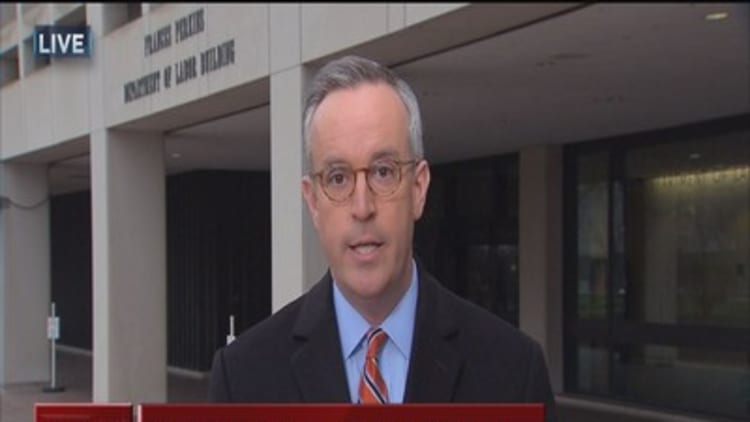European stocks finished in negative territory on Friday, in what has been a turbulent week for markets, as investors focused on China, oil prices and a strong monthly jobs report in the U.S.
Biggest loss since August 2011
European markets
The pan-European STOXX 600 ended trade down 1.3 percent provisionally, with almost all sectors closing lower. On the week, the STOXX 600 was down 6.6 percent provisionally, its largest weekly percentage loss since August 2011 during the European debt crisis, when it fell 9.94 percent.
The German DAX was down 8.3 percent for the week, suffering its worst weekly loss since the week ending August 19, 2011 when it lost 8.63 percent.
The official jobs report from the U.S. did little to lighten the mood in Europe. The data tracks non-farm employment and showed that 292,000 jobs were created in December in the country. This was much more than the expected 200,000 new jobs. U.S. stocks jumped on the news, however pared gains to trade slightly lower at Europe's close.
The U.K. FTSE 100 finished down 0.7 percent, the German DAX down 1.3 percent, while the French CAC 40 slipped even further, closing down 1.6 percent.
US jobs beat

The unemployment rate was unchanged at 5.0 percent, although the participation rate ticked up. The report has piqued expectations for a further Federal Reserve interest rate hike in March and another one later in the year.
"The strong jobs report will go a long way toward assuring the Fed's leadership that the broad strategy outlined is still valid. Fed officials could hardly have hoped for a more supportive jobs report," BBH strategists led by Marc Chandler said in a note after the report was out.
China scraps circuit breaker
The U.S. data stole attention away from China, after this week's wild ride saw Chinese markets shut down twice to stem rapid selloffs.
Chinese and global stocks stabilized somewhat on Friday after the China Securities Regulatory Commission suspended the market-calming system. The Shanghai and Shenzhen composite indexes both finished the day in positive territory.
Stocks got a further boost after China's central bank moved the yuan's mid-point against the U.S. dollar a shade higher on Friday. Plus, the People's Bank of China said it would further liberalize interest rates in a statement out later on Friday.
The calmer China stock markets on Friday helped push up a handful of European basic resource stocks in early trade, however the continued pressure on metal prices kept most lower. Rio Tinto, Anglo American and BHP Billiton all posted strong losses.
Oil in focus
Despite initially rising in morning trade, crude oil prices came under sharp pressure on Friday, heading back to 12 year lows on Thursday, as investors grew more concerned over a relentless supply glut and low demand globally. Brent last stood at $32.88 and U.S. crude was at $32.74 per barrel.
Shares in key oil stocks like Sbm Offshore and Total slipped to close sharply lower, over 3.5 percent, as long-term concerns over oil oversupplies continue. Tullow Oil finished down over 7 percent.
Royal Dutch Shell ended 6.4 percent lower after the Financial Times reported that its £36 billion ($52 billion) bid for BG Group would likely win the support of most of the Anglo-Dutch oil giant's shareholders. Shares of BG Group pared gains, yet remained higher by the close
Sports Direct plummets over 15%
Shares of Sports Direct plummeted over 15 percent after the British retailer issued a profit warning. This highlighted a deterioration in trading conditions due to the unseasonal weather over the holiday period.
At the top of the FTSE, U.K. supermarket Tesco ended 5.5 percent up, after it received a broker upgrade by Barclays. This boosted other stocks in U.K. retail, including Morrisons and Sainsbury.
Plus, shares of Shire reversed earlier gains, to close almost 2 percent lower after Reuters reported that the pharmaceutical company was preparing to announce a roughly $32.5 billion acquisition of Baxalta, citing people familiar with the matter.


